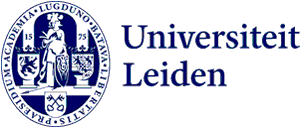Study adviser or coordinator
Your study adviser or coordinator is an expert on all aspects of your study programme. If you have any questions or concerns about your programme, whether they be of a practical or academic nature, you can contact your study adviser.
Academic issues
Are you experiencing academic difficulties? Or are you falling behind in your studies due to personal circumstances? If so, it is essential that you speak to your study adviser/coordinator as soon as possible. He or she can advise you on the best course of action and, if required, assist you in dealing with study delay.
Practical issues
You can also speak to your study adviser about a range of practical issues concerning your programme, such as:
- Planning your studies
- Schedule issues
- Choosing elective credits
- Requesting exemptions
- Advice on internship
The Faculty of Governance and Global Affairs does not have faculty-level study advisers. The study advisers are affiliated with the institutes within our faculty. For more information and contact details, please visit your programme’s tab.
Leiden University offers various forms of support related to student wellbeing. For more information, please visit the wellbeing page or contact the study advisers.
LUC’s Liberal Arts & Sciences academic environment is stimulating, intensive, and demanding. Students, therefore, are offered advice to ensure their intellectual and academic development is well conceived, organised, and ultimately successful. To this end, LUC has set up a Student Support System which consists of academic and social support.
The academic part of the Student Support System consists of the Study Advisor and the Major Academic Advisors. Both form an important link with students, administration, instructors and procedures. They play a key role in the College, making sure LUC is not an anonymous organisation. Rather, LUC aims to be an organisation which forges a highly individualised study environment. Students require different levels of study advice over the course of their academic programme, because of being at a different stage of intellectual development; encountering academic obstacles; changing their academic goals; and because of personal difficulties which affect their academic programme.
Study Advisor
Our Study Advisor is responsible for advising students on their academic choices on the administrative side: study load, graduation requirements, Study Plan, what to do when a student experiences extenuating circumstances, advice on rules and regulations. In addition they monitor progress for all students, making sure no students fall between the cracks. Students who are suffering delay in their studies will be invited for a meeting to discuss and address the reasons for the delay. If needed the Study Advisor can refer to the Student Life Counsellors or other professionals within Leiden University. The Study Advisor also handles requests for Course Withdrawal and Leave of Absence, and follows up with these students. Conversations with the Study Advisors are confidential.
The Leiden Study System is executed by the Study Advisor, and finally she also advices students with a physical or learning disability. As for all parts of the Student Support System, trust and confidentiality are essential. Students are encouraged to contact the Study Advisor themselves when they need advice. The Study Advisor can be contacted via email: studyadvisor@luc.leidenuniv.nl. Their office is in 4.16, students can attend office hours or make an appointment here.
Major Academic Advisor
At the end of the first year declare their major. They are then assigned to a Major Academic Advisor.
Major Academic Advisor
At the end of the first year students declare their major. They are then assigned to a Major Academic Advisor.
The Major Academic Advisors are fully informed about the major in which they teach. They can explain differences between specific courses, advise on tracks, methodology courses, external courses, study abroad, internship or capstone ideas and postgraduate study.
The table below lists some, but not all, of the common circumstances in which students should contact either the Study Advisor or Major Academic Advisor.
| Study Advisor | Major Academic Advisor |
|
Administrative issues related to internships, Capstone, semester abroad, or external education |
Academic issues related to internships, Capstone, semester abroad, or external education |
| Registration of extenuating circumstances because of a disability | Major and minor selection |
| Extended illness which causes students to miss more than one class | Course selection |
| Concerns with a particular course or teacher | Post graduate study |
To fully benefit from the Student Support System, students are expected to respond promptly to correspondence from both Major Academic Advisors and the Study Advisor, honor appointments, and to keep their them up-to-date about their academic record, as well as personal issues that may influence their academics.
Major Academic Advisers may also schedule group meetings in order to share certain information with all their advisees. Second- and third-year students must meet with their major-specific Academic Advisers at least once per semester, but are free to contact (and may be summoned by) their adviser more frequently, as matters arise.
Please arrive at advising meetings prepared: familiarise yourself with the relevant information, if available, and consider what you wish to accomplish through the meeting. In short, being responsible for your own development and responsive to tutorial support are indispensable for the smooth running of the LUC academic advising system.
